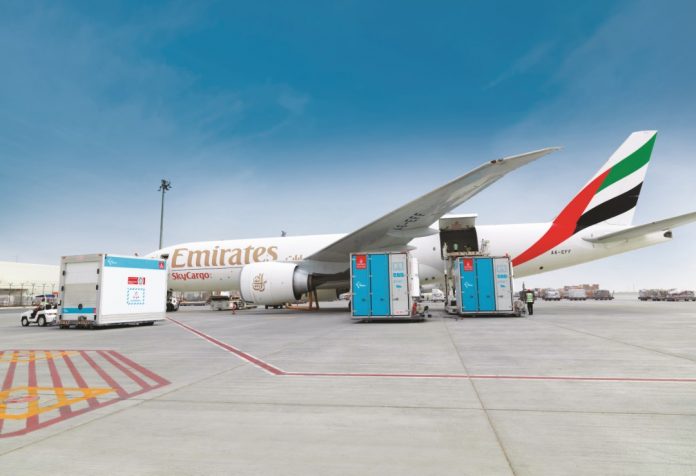
Sydney Kawadza
Zimbabwe could yet again suffer from self-inflicted challenges that would see the Southern African country fail to capitalize on the African Continental Free Trade Area currently being implemented across Africa.
The key challenges threatening Zimbabwe’s full participation in the AfCFTA include numerous macro-economic and risks weakening the country’s industrial base policy, institutional, governance, non-tariff barriers and trade facilitation coupled by a huge skills gap. كيف احصل على المال مجانا
In a recent interview from his base in Addis Ababa, Ethiopia, United Nations Economic Commission for Africa director in charge of the Regional Integration and Trade Division, Dr Stephen Karingi said Zimbabwe had the potential to lead the full implementation of the Agreement if it resolves some of its economic challenges.
“Zimbabwe is in a good position but intermediate input is needed in the improvement and fixing of the macro-economic situation in the country. The country will have a much more huge impact on the AfCFTA by opening up its economy. However this also has its effect on a variety of other aspects such as tax collection leading to revenue loss to the government.
“But this revenue loss which could be of concern to the authorities could be the ability and need to re-invest the gains from trade facilitation for better technology in the industries.”
UNECA is assisting African countries come up with AfCFTA national implementation strategies with Zimbabwe coming with its final draft in December last year.
The AfCFTA is a flagship project of the Agenda 2063: The Africa We Want, and a key step towards achieving the vision of the Abuja Treaty (1991), of establishing the African Economic Community (AEC).
The AU Summit held in 2012 endorsed the Action Plan for Boosting Intra-Africa Trade while undertaking to fast track the establishment of the Continental Free Trade Area.
The BIAT seeks to address the key constraints and challenges impeding the growth of intra-African trade in an effort to expand trade and increase benefits that can be derived from it; and ultimately attain sustainable economic growth and development. لعبة الشيش اون لاين
In 2018, African Heads of State and Government signed the AfCFTA which covers trade in goods, trade in services, competition policy, intellectual property and investment.
Zimbabwe ratified the AfCFTA in 2019, affirming the country’s commitment to deepening integration and trade within Africa.
However, Zimbabwe, with a high government expenditure, budget deficits and inability to sustain repayments of public debt, is inflicted with structural problems.
The budget deficit as a proportion of GDP is currently estimated at 9. هازارد 2023 24 percent.
According to the draft implementation strategy, the creation of RTGS balances without any real US dollars to back it compounded the macroeconomic problems.
This further undermined the competitiveness of the productive and export sectors in the country.
“As a result of the heavy reliance on domestic borrowing it became increasingly difficult for the private sector to access domestic credit due to competition from Government for the same funds.”
The implementation strategy identifies two key fundamental issues that need to be decisively addressed to enable meaningful recovery of competitiveness in Zimbabwe.
These include the containment of excessive government expenditures to tame the unsustainable budget deficit and its attendant adverse impacts.
It also advocates for minimizing further erosion of export competitiveness caused by the prolonged use of the multi- currencies system in place of a local currency through which a strong US dollar relative to value of regional currencies created increased demand for imported products which are cheaper compared to locally produced goods.
These are under threat from the numerous macroeconomic constraints and risks that have weakened the industrial base, undermined production, reduced export capacity and created widespread adverse impacts on the domestic economy.
Inflationary pressures, fuelled by unsustainable government expenditure, against the background of declining national revenue sources has resulted in government borrowing heavily on the domestic market increasing money supply; and high indebtedness of government.
Lack of foreign currency has negatively affected ability to procure imported inputs and capital or industrial goods; pay foreign suppliers on time; and recapitalise and invest for expansion.
Due to lack of liquidity, the private sector is unable to raise adequate funds to finance working capital and investments.
Strong exchange rate of the US (relative to the value of regional currencies) which favours imports and discourages exports leading to rapid growth of imports that are much cheaper that locally produced goods.
To this end, Zimbabwe remains under threat from being left behind of implementation of the AfCFTA, which came into effect in May last with the conclusion of negotiations in areas such as trade in goods and trade in services while countries are expected to submit their schedules of commitment.
Second phase of negotiations covering intellectual property rights, competition policy and investment were scheduled for this year but affected by the COVID-19 pandemic.
Negotiations on rules of origin are also outstanding in the negotiations.
Dr Karingi, however, believes that while the July 1 full AfCFTA implementation was no longer feasible, the COVID-19 pandemic gives countries like Zimbabwe to put their houses in order.











